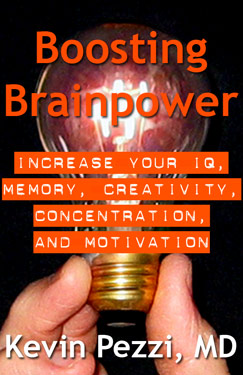How ER doctors can combat burnout
by Kevin Pezzi, MD, who knows a thing or two about burnout
Want more fun and less work?
Want smiles, not stress?
Read Dr. Pezzi's free e-book
Microhome Living

The stresses and joys of being an ER doctor page is a good preface to this one. I recommend reading it before you continue.
Working as an ER doctor can be both unusually stressful and unusually rewarding. Fortunately, it is possible to minimize some of those stresses so that you can maximize your career enjoyment. I plan to provide those tips as soon as possible (see * below), because there is definitely a need for them.
The sages who teach people to become doctors usually do a good job of training them in the technical aspects of medicine, but those professors and attending physicians rarely utter a peep about some of the most common problems that doctors face. Instead, they figuratively cast fledgling doctors into a minefield and expect them to devise their own countermeasures AFTER they've already stepped on a landmine. Wouldn't it make more sense to broach these problems in advance and advise young doctors on how to avoid them?
* So when will I publish those tips? As soon as I can afford to devote more time to this endeavor. It's now 3:38 PM, and I haven't sold one book today, but four people did click one of the Google ads on my various web sites. From that, I made a grand total of $2.22. Not bad, perhaps, but my book and web publishing expenses are at least $30 per day.
UPDATE: I'm no longer in the book biz, and I doubt that I ever will be again. I offered a lot of information you'd give your right arm for, and I have a mountain of pending tips to improve your intelligence, creativity, memory, energy, empathy, stick-to-it-iveness, industriousness, appearance, mood, sexuality, strength, health, and longevity—all of which tie together, not surprisingly. I plan to release that info free as time permits, probably beginning with weight loss, then brainpower, then advice for us to individually and collectively succeed in this challenging economy. You can now sign up to receive the updated weight loss book; I will later provide a way to sign up for other information.
I know that I have very valuable information. Consider empathy, for example. If you've read my books and websites, most of which I wrote years and even decades ago, you could probably sense that I was burned out and lacked empathy. I solved that problem on my own, and as my mood soared my empathy skyrocketed to the point I was more concerned with helping others than myself (here is an example).
Very few physicians possess genuine empathy for patients. What docs view as empathy is usually a transparently fake caring that's often proportionate to your ability to pay them. Now that I've seen the medical profession from the standpoint of a patient and a relative or friend of one, I am disgusted by the priorities of my colleagues who value the almighty dollar more than patients.
Even apart from monetary concerns, I am shocked by their lack of dedication (e.g., thinking half-ass is good enough, or making patients wait weeks for an appointment—as if their golf or wine tasting is more important than that lump in your breast) and pure idiocy that leads them to conclude the path to health is paved with pills. Medicine is overwhelmingly focused on the treatment of disease, not its prevention. Doctors should be teaching patients thousands of ways to stay healthy, feel better, and so forth, but look at the average bloated, unhappy doctor, and ask yourself if that person really knows much about health. The answer is a resounding NO, and doctors are living proof their approach to health is dead wrong. I intend to correct that.
Doctors were not able to solve any of the vexing medical problems I faced, from severe acne to my nightmarish experience with objective tinnitus that led to severe chronic insomnia that fueled my burnout and made me cranky. Docs could not help a cardiac arrhythmia that threatened to kill me, but one of their not-so-wonderful drugs virtually erased my libido, sexual pleasure, and hence desire to marry. I solved all of those problems, and others, on my own, using information unknown to mainstream doctors whose knowledge is limited to what's taught to them by a medical education system less concerned with helping patients than profiting from them using drugs and surgery.
I am not opposed to mainstream treatments, but they are just a fraction of what doctors should be doing to optimize patient health and happiness. Most doctors are perfectly happy living inside the medical box, but most patients are not. If you knew what you're missing, you'd be furious that purportedly knowledgeable and caring doctors left an unconscionable amount unsaid. I will correct that, and I won't charge you a penny.
For example, as an ER doctor, you will (as I mentioned here) have some foxy women wrap their arms around you and not want to let go, but you'll also have other patients who want to rip your spleen out. Not all of those angry folks are bad people; many are just frustrated by waiting for hours. I frequently encountered this problem the first hour of busy shifts when I would enter a room and be greeted by a barrage of complaints about how long they waited to be seen.
Even in the best cases, ER patients are often wary of doctors they don't know. You could do what most doctors do, which is to introduce yourself and start asking questions, or you could do what I eventually learned to do, which was to discover how to rapidly (in seconds) make people like you and establish a bond that dissipates their anger and fosters a better ER visit for everyone involved.
Emergency departments treat a wide variety of patients, so you must learn how to harmonize with everyone from CEOs and celebrities to blue-collar workers, alcoholics, drug dealers, criminals, feisty old folks, exhausted parents, defiant teenagers, babies, and everything in between. Medical schools often now provide practical instruction in how to interact with patients, but from what I've seen, such tutelage is woefully incomplete. Patients will perceive you as a better robot, but a robot nonetheless. Their New Age techniques are a step in the right direction, but they only scratch the surface in terms of teaching you the art of medicine.
Keep that phrase in mind: "the art of medicine." If you attend medical school, you will hear it repeatedly. Medical school professors love to talk about it, but few of them ever master the most vital aspect of this art: learning how to create a doctor-patient relationship that enables you to deliver the best possible care. Less than five minutes after I met some patients, they said they'd told me things they had never mentioned to their own spouse or the guy who'd been their family doctor for decades. Med school profs universally acknowledge the importance of a thorough medical history, but they never give you the tools to help you root out details that may be crucially important. Patient interaction practicums in medical school are typically infrequent, short, and focus on perfectly reasonable, perfectly cooperative, middle aged, middle class intelligent folks. Not cranky kids, drunks in a vile mood, or savvy criminals looking to sleep in a hospital, not in a jail.
Once you begin working as an ER doctor, most of you will work for ER directors and ER corporations that could fill in this educational gap, but most of them don't know how to do this. In addition to helping patients receive better care, my techniques would improve staff morale, which is something for which there is frequently a pressing need. The burnout rate in emergency medicine is alarmingly high. In response, those ER directors and ER corporations typically do … nothing.
Related topics
Doctors leaving medicine & how combating burnout could lessen the desire to drop out
Medscape Survey: ER doctors most likely to suffer burnout
Excerpt: “More female physicians reported burnout (45%) than male physicians (37%).”
Article: Nearly half of U.S. doctors struggling with burnout
Excerpt: “Job burnout strikes doctors more often than it does other employed Americans.”
Comment: This negatively affects patient care, so even if you aren't a doctor or married to one, physician burnout will likely affect you. I spent years discussing problems in the medical profession to shine a spotlight on the ones that desperately need to be solved.
For more information: Burnout and Satisfaction With Work-Life Balance Among US Physicians Relative to the General US Population
Notes:
- Why Are MDs Burning Out in Record Numbers?
- Burnout is caused by mismatch between unconscious needs and job demands
- Critical care health care professionals have high rates of burnout syndrome
- Increased Hospital Infections Linked to Nurse Burnout
- Work-Related 'Burnout' More Likely to Affect the Best Lecturers, Study Suggests
Comment: I think that all people—not just lecturers—who strive to be the best are more likely to burn out. - New Medical School Programs Help Students Battle Burnout
- It’s Not Too Early for Medical Students to Think About Physician Burnout
- Physician Burnout: Time Spent On Meaningful Pursuits May Cut Risk
- Long Shifts Lead to Nurse Burnout and Dissatisfied Patients based on The Longer The Shifts For Hospital Nurses, The Higher The Levels Of Burnout And Patient Dissatisfaction
- Job Burnout Can Severely Compromise Heart Health
- Burnout, depression: Two entities or one?
- Young Soccer Players Show Signs of Burnout
Excerpt: “Young elite players at professional soccer clubs are at risk of burnout before they leave school because of the perfectionist standards they feel coaches, parents and team members demand of them, according to a new study.”
Comment: I don't understand the current trend for parents to watch their kids play sports. When I was young, kids had loads of fun playing sports without any adults around. Play comes natural to kids; they don't need help doing it, nor do they need a parental audience.
UPDATE 2008: Medicine just became a much more desirable profession, thanks to the economic crash that devastated our economy in 2008. The profession of medicine offers one thing—job security—that is nice in good times but as precious as gold in bad times. I needn't remind you that things are bad now, and almost certain to get much worse (if you doubt that, read this). When times change, it is important to change with the times. I've used a lot of ink warning students in the past about the drawbacks of a medical career, and all of those reasons were quite valid. The cons are still there, but the list of pros just mushroomed in importance thanks to the inherent job security in most medical careers. Good luck trying to find another career that offers comparable job security.
UPDATE 2020 is markedly different thanks to the coronavirus that made work-at-home jobs much more enticing.

